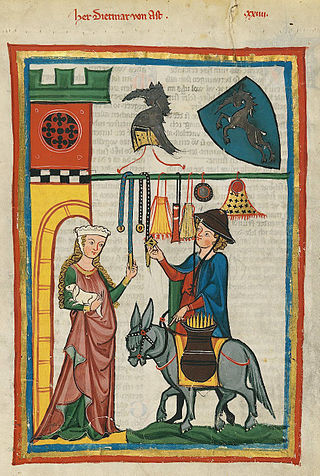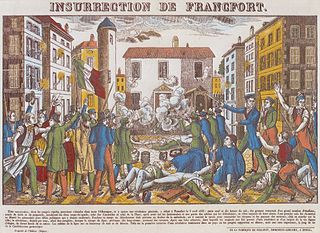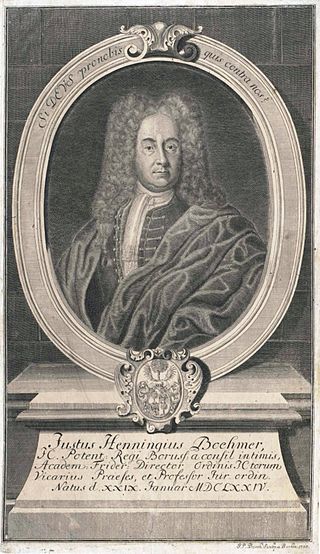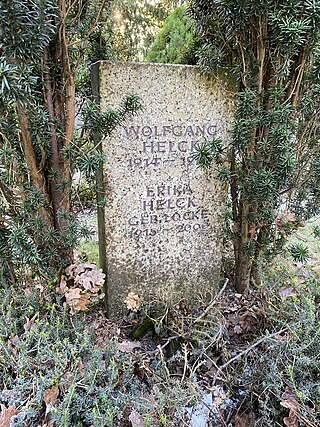
Hans-Thorald Michaelis (born 24 April 1925 in Hanover, died 18 December 2004 in Aachen) was a German historian, germanist and genealogist.

Hans-Thorald Michaelis (born 24 April 1925 in Hanover, died 18 December 2004 in Aachen) was a German historian, germanist and genealogist.
After his studies in history, germanistics, philosophy and Protestant religion in Frankfurt am Main, Mainz, Göttingen and Marburg he started a career as a grammar school teacher. In 1963 he awarded his doctor in philosophy with the theme: “Die Grafschaft Büdingen im Feld der Auseinandersetzungen um die religiöse und politische Einheit des Reiches 1517−1555“ (The County Büdingen in the field of conflicts on religious and political unity of the realm 1515−1555). [1]
Between 1966 and 1971 he was in charge of the constitution and direction of the evening grammar school in Wiesbaden. In these politically turbulent times he very early campaigned for this new German “second-chance or adult education” and for the democratisation in school and along with this the student council.
Since 1965 until 1973 contemporaneous with the above-mentioned function he got involved as an active member in the Wiesbaden Social Democratic Party of Germany (SPD) and he published a work on the history of the 100-year-existence of the party in their festschrift. In 1977 after his activities in the SPD, Michaelis was cofounder of a local political party “Freie Wählergemeinschaft” (FWG) (free voters union) of Wiesbaden and also member in the “Frankfurt round table ”, a political, economic and liberal club for discussions with very important persons (VIPs).
In context with his long-time work in the Protestant church he campaigned also for the ecumenism of church very soon and took part in 1968 on the 4th plenum of the ecumenical World Council of Churches in Uppsala. In 1976 he joined the club: “Brüderlicher Kreis” (brother circle), a Christian religious open community with Protestant imprint, which has its origin in the confraternity of Baltic States, founded 1926.
After his retirement in 1982 he was engaged in the constitution and management of the archive from the “Deutscher Schützenbund” (German Shooting Sport Federation) in Wiesbaden, which is the head organisation for German Schützenverein. During this time he wrote more than ten papers about the historical background of the German Schützenverein and organised several expositions.
Since his early days Michaelis was interested in genealogy. On the basis of already available information and documents regarding several branches of his family he travelled to different regions of Germany and overseas in order to complete these data. Thus it was possible to generate a databank with more than 10,000 persons of the corresponding families Michaelis, von Boehmer, Von Görschen and Weitbrecht. In context with these searches he published more than 50 essays and papers including their historic circumstances and backgrounds. On the basis of these researches he could prove that all descendants in direct line of his grand-grandmother Mary Barbara Rennie (1836−1920) from the Rennie-Clan of Kilsyth, are also direct descendants from the pilgrims father William Bradford (1590−1657). Therewith the mentioned persons are eligible for membership in the traditional and renowned the Mayflower society based in Plymouth, Massachusetts.

Johannes Janssen was a German Catholic priest and historian. He wrote an eight volume History of the German People, quoting many original sources.
A Schützenverein is a local voluntary association found in German-speaking countries revolving around shooting as a sport, often target shooting to Olympic rules or with historic weapons. Although originating as a town militia, a Schützenverein has no military aspects and in many cases often has a more social than sporting purpose.

Dietmar von Aist was a Minnesinger from a baronial family in the Duchy of Austria, whose work is representative of the lyric poetry in the Danube region.

The Frankfurter Wachensturm on 3 April 1833 was a failed attempt to start a revolution in Germany.
Reinhart Hummel was a German theologian and long-term leader of the Evangelische Zentralstelle für Weltanschauungsfragen (EZW). The EZW is a subdivision of the Evangelical Church in Germany. Located in Berlin, it professes to function as a centralized research, documentation and information center on new religious movements. Hummel is also the author of many books about new religious movements.

Justus Henning Böhmer was an outstanding German jurist, ecclesiastical jurist, Professor of the University of Halle and also Geheimer Rat, count palatine and chancellor of the Duchy of Magdeburg.

The Casino faction was a moderate liberal faction within the Frankfurt Parliament formed on 25 June 1848. Like most of the factions in the parliament, its name was a reference to the usual meeting place of its members in Frankfurt am Main. Casino was the largest and most influential faction at Paulskirche. Its members were for the most part national liberals.
Klaus Gustav Heinrich von Beyme was a German political scientist who was professor of political science emeritus at the Faculty of Economic and Social Sciences of the University of Heidelberg.
Imanuel Geiss was a German historian.
Heinrich Ludwig Julius Heppe was a German Calvinist theologian and church historian.

Hans Wolfgang Helck was a German Egyptologist, considered one of the most important Egyptologists of the 20th century. From 1956 until his retirement in 1979 he was a professor at the University of Hamburg. He remained active after his retirement and together with Wolfhart Westendorf published the German Lexikon der Ägyptologie, completed in 1992. He published many books and articles on the history of Egyptian and Near Eastern culture. He was a member of the German Archaeological Institute and a corresponding member of the Göttingen Academy of Sciences.
Hellmut Diwald was a German historian and Professor of Medieval and Modern History at the University of Erlangen-Nuremberg from 1965 to 1985.

Werner Georg Kümmel was a German New Testament scholar and professor at the University of Marburg.

Philip III of Falkenstein, Lord of Falkenstein, Münzenberg and Lich, Hesse was a member of the Lich line of the Falkenstein dynasty, son of Werner I of Falkenstein, Lord of Münzenberg and Falkenstein, who founded the Lich line, and his wife Mechtild of Diez.
Gerhard Menk was a German historian and archivist.
Arnulf Krause is a German philologist who specializes in Germanic studies.

Klaus von See was a German philologist who specialized in Germanic studies.

Wolfgang Golther was a German philologist who specialized in Germanic studies. A professor at the University of Rostock, Golther was a prominent authority on Medieval German literature and Germanic religion.
Wilhelm Emil Mühlmann was a German ethnologist who served as Professor of Ethnology at the University of Mainz and Chair of Ethnology at the University of Heidelberg.
Günther Binding is a German art historian and retired professor of art history and urban conservation at the University of Cologne.